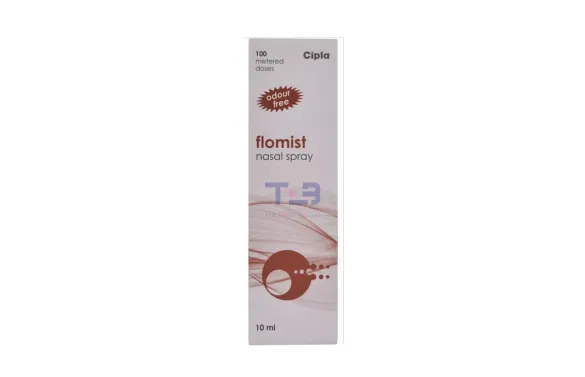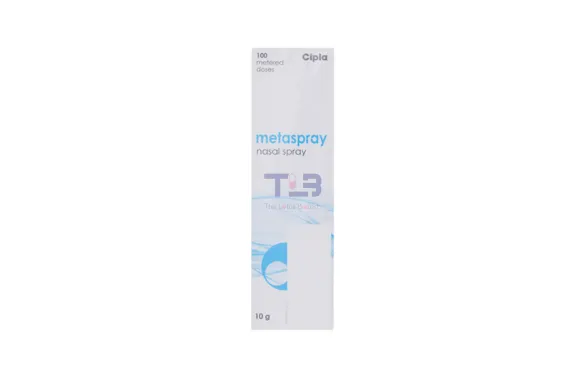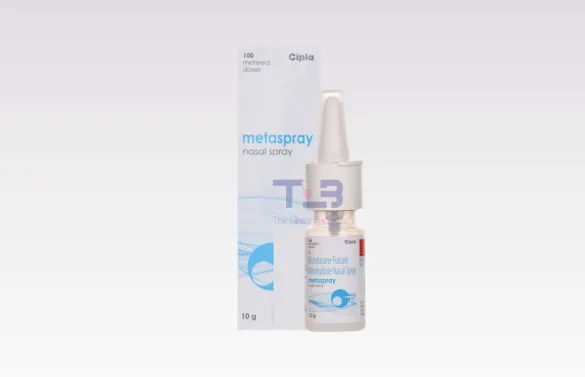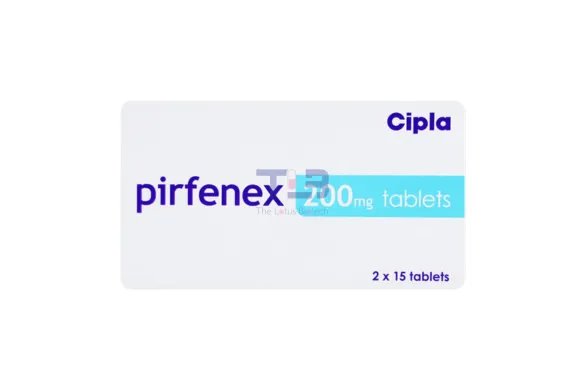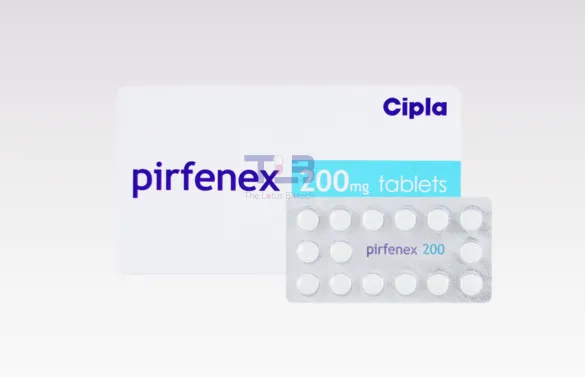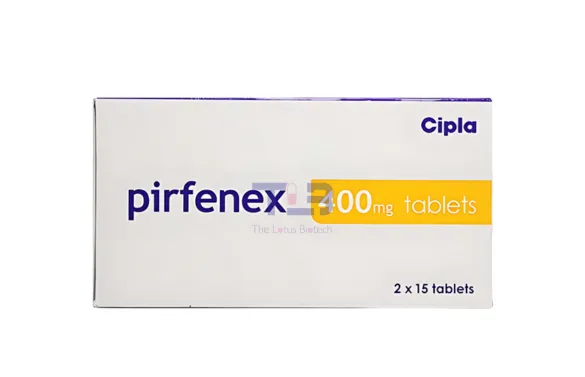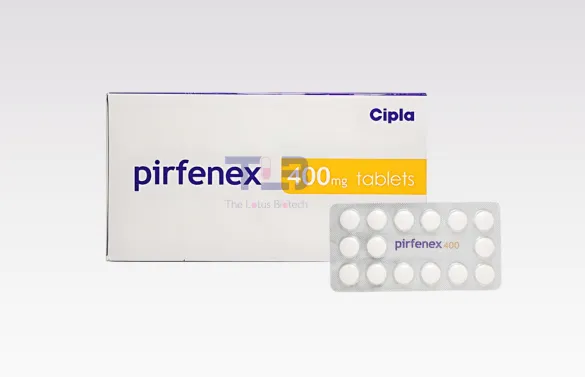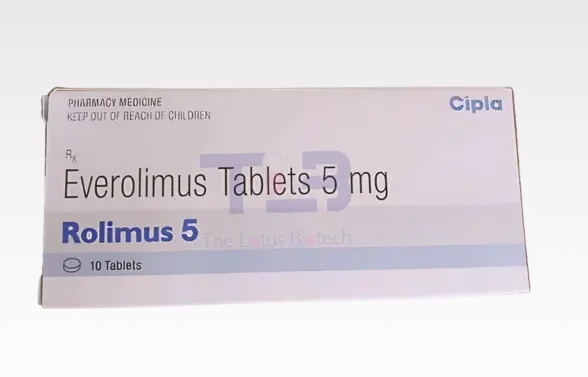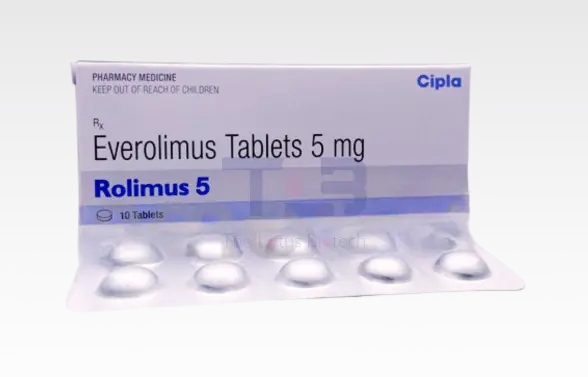Description
| Medicine | Flomist Nasal Spray |
| Marketed By | Cipla Ltd |
| Active Ingredient | Fluticasone Propionate 0.005% w/v |
| Storage | Store below 30°C |
| Consume Type | For Nasal Use Only |
Flomist Nasal Spray – Introduction
Fluticasone propionate 0.005 is used to treat rhinitis symptoms like watery, itchy eyes brought on by hay fever or other allergens and a runny, stuffy, or itchy nose. Additionally, it treats nonallergic rhinitis symptoms (not related to allergens), including sneezing and a runny or congested nose.
How Flomist Nasal Spray Works: A Closer Look
Fluticasone is a corticosteroid displaying antiproliferative, anti-inflammatory, and immunosuppressive qualities. These qualities reduce inflammation and swelling in respiratory-related conditions such as rhinitis and nonallergic rhinitis.
Use
- Treatment of rhinitis symptoms
- Treatment of nonallergic rhinitis symptoms
Flomist Nasal Spray- The Benefits
Flomist Nasal Spray benefits:
It is beneficial for adults and children 4 years of age and older for the treatment of the nasal symptoms associated with chronic nonallergic rhinitis.
Flomist Nasal Spray- A Usage Guide
Flomist Nasal Spray should be used in the following way:
- Remove the cap and give the nasal spray a good shake.
- To cleanse your nasal passages, gently blow your nose.
- Place the bottle opening beneath one nose while using your finger to seal the other nostril.
- Squeeze or pump the bottle gently while aiming the spray in the direction of the same side ear.
- Take a small, gentle breath to make sure the substance stays in your nose.
- If necessary, repeat the procedure for the opposite nostril.
- Replace the cap after cleaning the nozzle.
Flomist Nasal Spray- Side Effects
The majority of the cycloserine side effects fade away as your body adjusts to the medicine. If they persist longer than expected, booking an appointment with your doctor is advisable.
Common Side Effects
- Dryness
- Stinging, burning, or irritation in the nose
- Sore throat
- Diarrhea
- Bloody mucus in the nose
- Dizziness
- Nausea
- Vomiting
[Note: Different drugs can cause varying side effects. To get accurate information about a medication’s side effects, refer to the official prescription information or consult your healthcare provider.]
Flomist Nasal Spray- A Guide to Safety
Alcohol
Unknown
It is uncertain how alcohol interacts with it. It is best to speak with your physician prior to using.
Pregnancy
Unsafe
It is classified as USFDA Pregnancy Category C, meaning that although studies on animals have demonstrated harmful effects on the fetus, there are no controlled trials on humans or studies that combine women and animals. As such, take it under physician supervision.
Breastfeeding
Unsafe
It is unknown if this medication is eliminated from human breast milk. Before using this medication, check with your doctor if you are nursing a baby.
Driving
Unsafe
It can cause dizziness hence it is advised not to engage in activities like operating heavy machines and driving vehicles.
Liver
Consult your Doctor
There is a dearth of information about its use in liver conditions. Hence, consult your doctor.
Kidney
Consult your Doctor
There is a dearth of information about its use in kidney conditions. Hence, consult your doctor.
Fact Box
| Chemical Group | Synthetic glucocorticoid |
| Addictive | No |
| Medication Class | Synthetic glucocorticoid |
| Action Class/Category | Respiratory conditions |
Swift Advice
- Asthma episodes cannot be prevented by inhaling fluticasone.
- It is necessary to stop using any steroid medication gradually. Observe the advice of your physician. As stopping abruptly can cause withdrawal symptoms.
- Never give this medication to a small kid without an adult’s assistance.
- To prevent a symptom return, finish the entire course of treatment.
How many times a day should Flomist Nasal Spray be used?
Flomist Nasal Spray is for intranasal use only. The recommended starting dosages are:
- Adults: 2 sprays/nostril once daily (200 mcg per day).
- children aged 4 years or above: 1 spray/nostril once daily (100 mcg per day).
Is Flomist Nasal Spray a steroid
Yes, Flomist Nasal Spray containing fluticasone propionate is a corticosteroid. It helps relieve symptoms of allergic rhinitis, including sneezing, runny nose, and sinus discomfort.
How should Flomist Nasal Spray be stored?
Store Flomist Nasal Spray at room temperature, away from sunlight and moisture. Keep it out of reach of children and pets. Make sure to dispose of any unused medicine properly.
What are the symptoms of an allergic reaction to Flomist Nasal Spray?
Seek emergency medical help if you experience signs of an allergic reaction after taking Flomist Nasal Spray, such as hives, difficulty breathing, or swelling of your face, lips, tongue, or throat.
Where to buy flomist nasal spray in bulk?
You can buy a varied range of medications including, Flomist Nasal Spray from The Lotus Biotech, one of the best suppliers of pharmaceuticals. With our expertise in cold chain shipment, medical supply warehouses, supply chain hubs, and secure packaging, we ensure prompt delivery. For a customized estimate based on your needs and quantities, contact us now.

